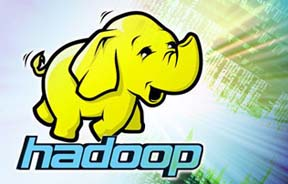
Teradata Edges Closer To Hadoop

Teradata made a major advance into the Hadoop ecosystem today with a series of announcements, including a new Hadoop cloud service, a data lineage tracking tool for HDFS called Loom, and a new reseller agreement with Cloudera, to go along with its existing one with Hortonworks.
The mainstream thinking in the Hadoop environment seems to have the big yellow pachyderm eating Teradata‘s lunch. It’s inevitable, the reasoning goes, that customers will move their big data warehousing workloads from expensive Teradata machines to cheap Hadoop clusters. And it’s not just Teradata, but all of the “legacy” data warehouse software companies that are endangered. All your bases (to paraphrase the Internet saying) are belong to Hadoop.
The truth is, it’s more complicated than that. While Hadoop is certainly disrupting the established business intelligence industry, it’s also helping to stir up new analytic use cases that didn’t exist before, creating a tide that helps lift all boats. As we’ve written previously, not all analytic workloads are a good fit for Hadoop, at least as it currently exists. Hadoop is promising, but it’s a bit green, which means there’s still a need for massively parallel processing (MPP) data warehouses as Teradata, Oracle, IBM, EMC and Actian have envisioned and built.
If Hadoop was such a mortal threat to Teradata’s existence, we probably wouldn’t see Teradata further reaching out to Hadoop and allowing its customers to use and get value from Hadoop, as it did with today’s announcements.
For starters, the company unveiled its first release of Teradata Loom since the company acquired the product from Revelytix earlier this year. Loom’s job is to track the lineage of data inside Hadoop, which can be difficult owing to the large number of structured and unstructured data sets that customers are storing in their data lakes, according to Teradata’s program marketing manager Imad Birouty.
“Hadoop is not much more than a file system,” Birouty tells Datanami. “Yeah there are MapReduce tools and everything. But at the end of the day HDFS is just a file system and data gets lost. Loom brings some structure to the potential chaos there. It tracks data coming in, keeps statistics on it, some metadata capability, and provides some data wrangling.”
Teradata already sells a Hadoop appliance that its customers can use to run Hadoop distributions from Hortonworks and other distributions. Now customers have another runtime option with the introduction of Teradata Cloud for Hadoop.
The new cloud offering (which doesn’t run on Amazon) will provide the open source Apache Hadoop strain as a managed service. Instead of administering the Hadoop environment, customers will be able to concentrate on developing their Hadoop workloads and getting value from them. A management console will be available, but most of the management will be taken care of by Teradata. The company’s recent acquisition of big data services firm Think Big Analytics will play nicely here.
Finally, Teradata’s new partnership with Cloudera will be looked kindly upon by joint customers. In addition to reselling Cloudera’s Distribution for Hadoop (CDH), Teradata will be supporting the software and working with Cloudera engineers to integrate their respective products, including supporting CDH with the Teradata QueryGrid and managing data housed in CDH with Loom.
It’s more than just a paper contract, Birouty says. “There is engineering and co-development work taking place,” he adds. “We’re looking to have the first availability of QueryGrid for Cloudera probably within a month or two.” CDH does not run on Teradata’s Hadoop appliance, as HDP does, but that could change in the future.
Teradata is making all these investments are investments in Hadoop for a single reason: its customers are demanding for it. If that means some workloads move off the Teradata database and onto Hadoop, then that’s OK by Teradata.
“We will recommend Hadoop, absolutely, if it’s the right fit,” Birouty says. “If we can enable our customers to use their data warehouse with all their other systems, they’re getting more value from that warehouse and they’ll buy more. We’re not trying to force them to buy another one of our appliances.”
Related Items:
Teradata Acquires Revelytix, Hadapt
Teradata Makes Data Warehouse More Hadoop-ish




























